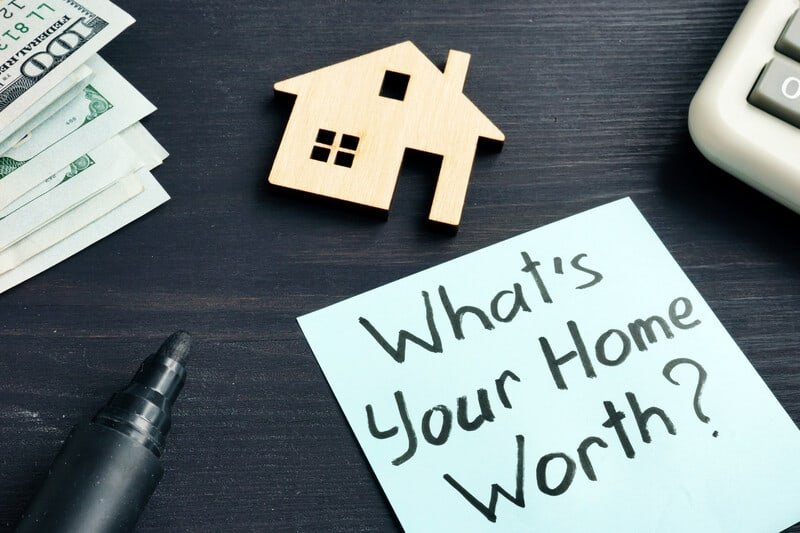When it comes to selling or refinancing a property, one of the first questions any homeowner asks is, “How much is your house worth?” Whether you’re curious about your property’s current market position or you’re preparing for a major decision, understanding the value of your home is essential. Home valuation isn’t just about bricks and mortar; it reflects local trends, demand, upgrades, and more. Let’s explore how to assess your home’s worth the right way.
1. Understand What Affects Property Value
Before jumping into tools or calling an agent, it’s important to understand what factors influence the value of a home:
- Location: This remains one of the most significant contributors. Properties close to good schools, public transport, shopping centres, or in low-crime areas often attract a premium.
- Size and layout: Bigger homes with more bedrooms and bathrooms generally hold higher values. Open floor plans and well-utilised space also boost desirability.
- Condition and age: A modernised, well-maintained home will naturally be worth more than one in disrepair. Kitchens, bathrooms, roofing, plumbing, and insulation all matter.
- Recent sales in the area: What similar homes have sold for nearby is one of the strongest indicators of your home’s market value.
- Market trends: Broader economic indicators like interest rates and local demand influence prices as well.
2. Online Valuation Tools – A Starting Point
Several free online tools can give you an estimated valuation based on postcode, property size, and historical sales. While these are useful for getting a ballpark figure, they have limitations. Algorithms can’t see your stylish kitchen renovation or the new conservatory. These tools should be used as a starting point rather than a final figure.
3. Look at Comparable Sales (Comps)
This is a technique estate agents use all the time: compare your home to others recently sold nearby. Aim for homes with a similar number of bedrooms, bathrooms, square footage, and features. Don’t just look at listed prices — focus on sold prices, as they reflect actual market transactions.
You can find this data on property portals or through the HM Land Registry. If three semi-detached houses like yours have sold for £300,000–£320,000, that’s a strong indicator of your property’s market range.
4. Conduct a DIY Home Appraisal
While it’s no substitute for a professional, walking through your property with a critical eye can help you better understand its value. Look at:
- Overall condition of flooring, windows, and fixtures
- Quality of appliances and finishes
- Storage space and loft usability
- Garden space and curb appeal
- Energy efficiency (such as double glazing, solar panels, insulation)
Note anything that might add or subtract value — and be honest with yourself. If you were buying this home today, what would you be willing to pay?
5. Consult an Estate Agent
For a more accurate picture, book a valuation with a local estate agent. They bring expert knowledge of your area, buyer behaviour, and market movement. A reputable agency such as Whitegates, which has deep local insight and experience, can assess your home properly, considering everything from street-level appeal to macro-market trends.
Most agents offer free, no-obligation valuations, which can be a great way to get professional input before deciding on your next step.
6. Consider a Chartered Surveyor Valuation
For legal, financial, or inheritance reasons, or simply for peace of mind, a valuation from a RICS-registered surveyor offers an impartial, highly accurate assessment. These professionals are trained to account for every technical and market factor. Their reports carry weight in mortgage and legal contexts, so it’s a good investment if you’re serious about your plans.
7. Factor in Future Value
If you’re not selling right now but want to plan ahead, think about what could increase your home’s worth over time. Popular improvements include:
- Loft conversions
- Kitchen and bathroom remodels
- Garden landscaping
- Adding energy-efficient features
- Building a home office or garden studio
Before spending, check if the upgrade adds value relative to its cost — sometimes, less is more.
8. Avoid Overpricing
One common mistake homeowners make is overestimating their home’s value. While it’s natural to want the best price, overpricing can lead to longer listing times and eventual price cuts. Buyers are well-researched and will compare your home to others on the market. A competitively priced home gets more viewings and, often, better offers.
9. Reassess Regularly
Even if you’re not moving today, it’s smart to revisit your home’s value annually. Property markets can shift quickly due to economic changes, new infrastructure, or local developments. Keeping up to date helps you make informed financial decisions — from remortgaging to letting.
Conclusion
Valuing your home accurately isn’t about guesswork or gut feeling — it’s a blend of research, comparison, and professional advice. From analysing recent sales to booking a local estate agent or surveyor, you have several tools at your disposal. And remember, the more you understand your home’s worth, the better positioned you’ll be — whether you’re planning to sell, let, refinance, or simply stay informed.
If you’re ready to take the next step, why not start with a local expert like Whitegates? Their knowledgeable team can guide you through every step of your property journey.




